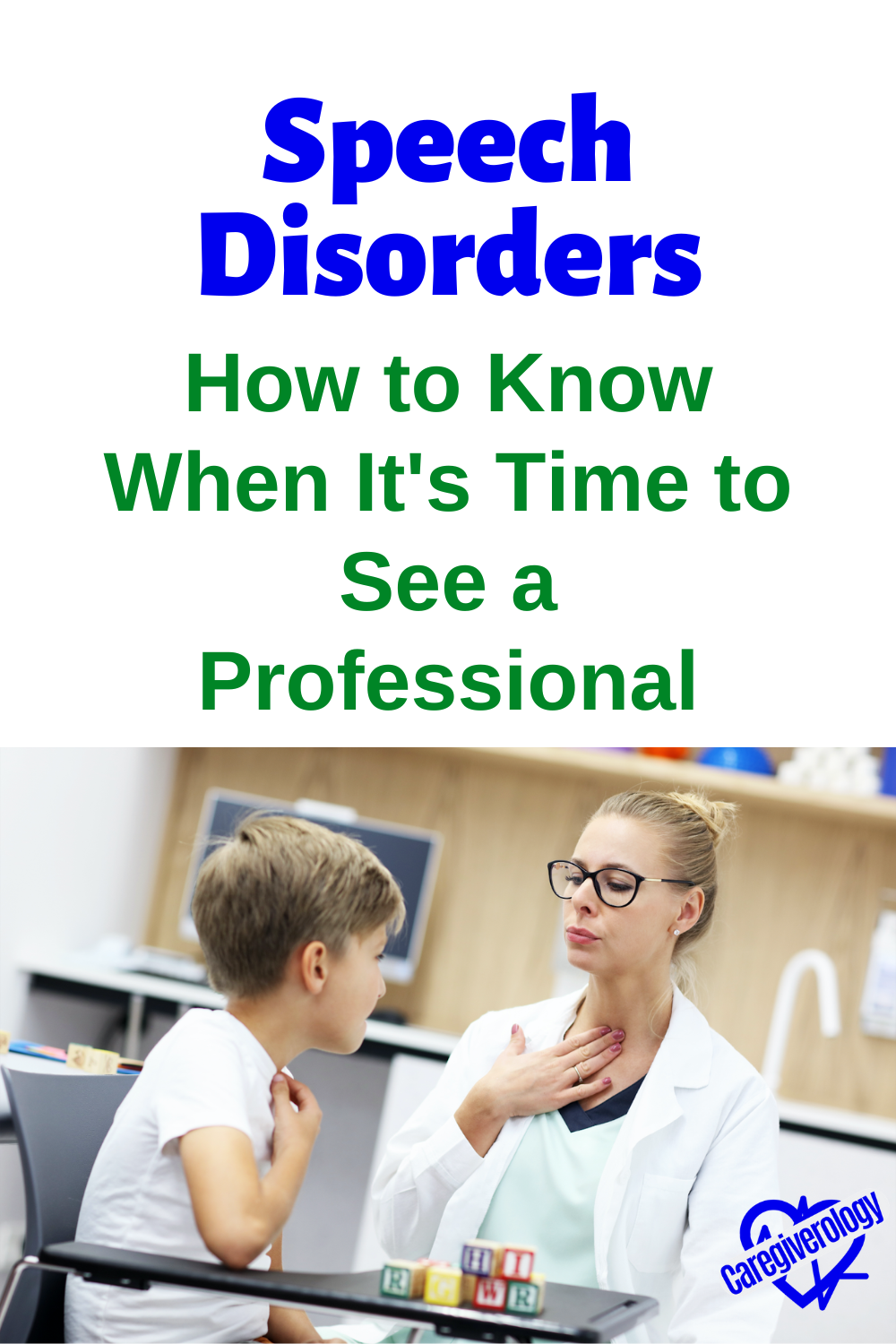Speech Disorders: How to Know When It's Time to See a Professional

When it comes to human interaction, we need to be able to communicate effectively. So if we’re encountering issues being understood by others, or feeling frustrated about not being able to communicate properly - whether that’s due to difficulty finding the right words, or difficulty with thinking, memory, or social skills relating to language - it might be time to seek professional help.
This article will give readers advice on how to know when to see a qualified professional (like an SLP masters online-accredited speech-language pathologist) for speech problems or disorders.
Warning Sign # 1: Issues being understood by others
If other people are having trouble understanding us, this could be a sign that our ability to communicate is not quite where it should be. Communication issues can also lead to other challenges - such as becoming socially isolated, for example, or not being able to progress academically. Yes, educational development can be impaired by speech and communication disorders, in addition to affecting our ability to interact and connect with the people around us.
There are a few factors that can cause these types of communication challenges - including verbal impediments such as stuttering, for example. Neurological or cognitive issues that prevent people from being able to express themselves verbally can also put up a barrier to effective communication.
Regardless of the reason for the speech disorder, however, these challenges can cause a great deal of frustration for the individual in not being able to communicate properly. If you or someone you know is experiencing frustration around language-based issues like these, it might be time for a professional to step in.
Warning Sign #2: Difficulty finding the right words
When we’re having difficulties with finding the right words to say, we can find it very challenging to express ourselves and communicate our thoughts and ideas to other people.
Also known as anomia, this type of communication impediment is caused by a neurological condition that impacts the individual's ability to retrieve the appropriate words. Anomia can also be further exacerbated when the individual is experiencing stress or anxiety. For this reason, treatments for anomia commonly involve encouraging the individual to practice meditation and mindfulness, learn deep breathing techniques, and engage in positive self-talk.
It's important to note that anomia differs from expressive aphasia. Although the symptoms of aphasia are often similar to those of anomia, as the individual will find it hard to retrieve and verbalize the words they need to express themselves, it differs in that aphasia is caused by damage to the brain - often, following a stroke.
Warning Sign # 3: Difficulty with thinking, memory, and social skills relating to language
Speech communication issues are not always developmental - that is to say, they’re not always present at birth or during childhood speech development.
Instead, speech disorders can be acquired - at times, through neurological conditions developed later in life, such as dementia or Alzheimer's. These types of conditions impair an individual's thinking, memory, and social skills, which can affect their ability to communicate verbally. In the case of dementia and Alzheimer’s sufferers, it’s often memory loss that impacts their word retrieval skills. For other types of speech-impacting neurological conditions like dsyartrhia on the other hand, the impediment is caused by a disconnect between the brain and the vocal muscles.
Regardless of the cause, however, having a speech impediment can have a flow-on effect in terms of an individual’s social skills. If an individual is experiencing language-based socialization issues, this could be another warning sign that a professional needs to get involved.
Conclusion
At times, it’s hard to know when we need help. But in the case of speech disorders, several warning signs can signal that it’s time for professional assistance.
Alarm bells like having trouble getting people to understand what you’re saying, and finding it difficult to find the words to express yourself, cognitive challenges that prevent you from thinking and remembering clearly, or language-based socialization issues - are all signs that you could have a speech-language disorder.
If in doubt, seek advice from a qualified speech-language professional. They’ll be able to diagnose your condition and provide you with the treatment you need to enable more effective communication.
Guest Articles Written for Caregiverology
Recent Articles
-
How to Plan for Aging: Financial, Health, and Lifestyle Considerations
Mar 29, 25 12:40 PM
Did you know that 70% of people over 65 will need some form of long-term care? Yet, many delay planning until it’s too late. Aging is inevitable, but how we experience it depends on preparation. -
Speech Disorders: How to Know When It's Time to See a Professional
Mar 27, 25 07:05 AM
When it comes to human interaction, we need to be able to communicate effectively. -
Who Provides What? The Distinct Duties of Nurses and Caregivers
Mar 26, 25 07:37 PM
When it comes to healthcare, the roles of nurses and caregivers are often misunderstood. While both are essential in providing support and care, their responsibilities, training, and the level of care…





New! Comments
Have something to say about what you just read? Leave a comment in the box below.